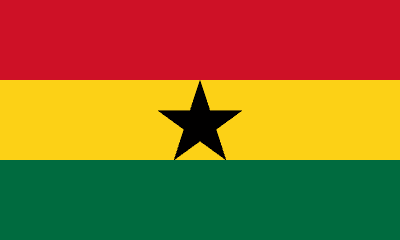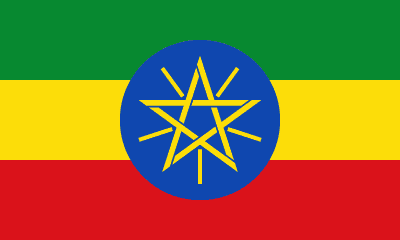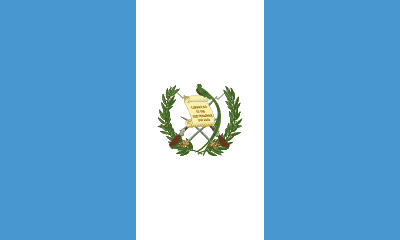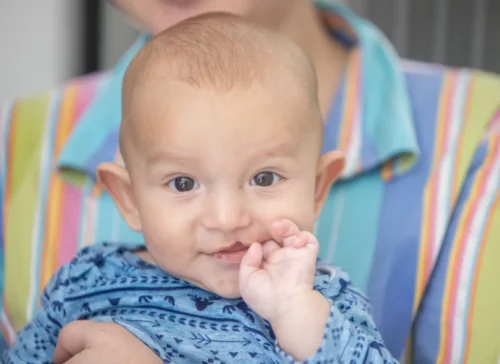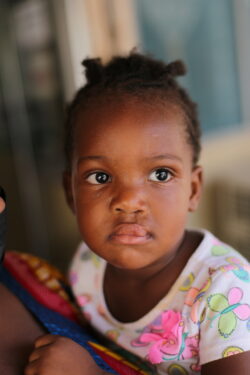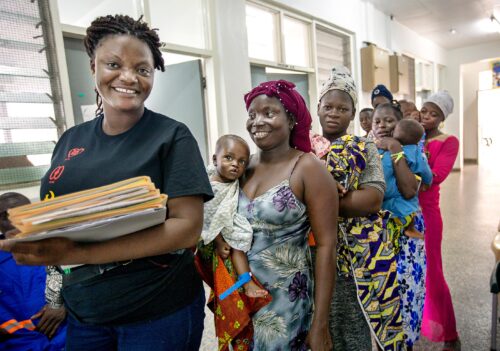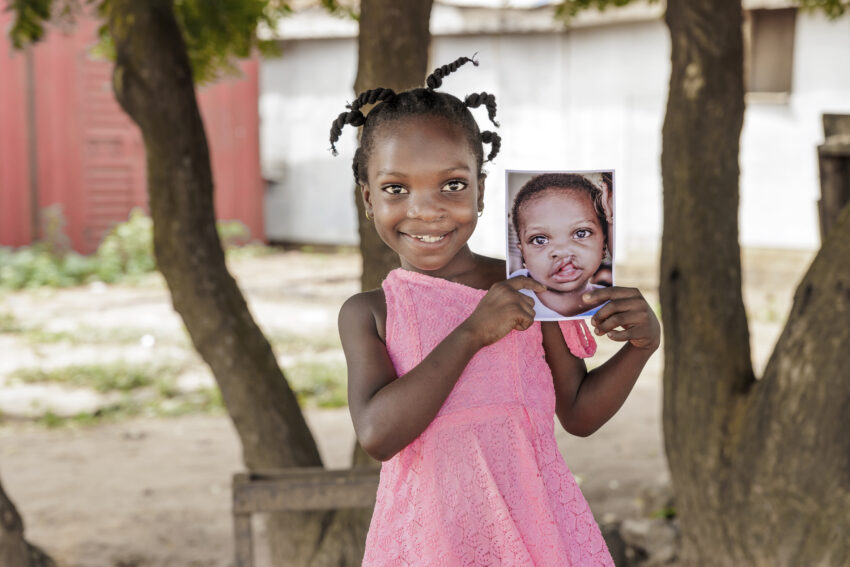
Operation Smile has been working in Ghana since 2011 to provide safe and high-quality care for children born with cleft conditions. Since then, our organization has coordinated more than 25 medical programs across Ghana, providing over 2,300 surgical procedures.
THE NEED
1 in 760 children. In Ghana, it is estimated that for every 763 births, one child is born with a cleft condition.
Financial burden. Impoverishing and catastrophic expenditure when accessing surgical care is an unsettling reality for 18% and 17% of the population, respectively. Out of pocket expenses often prevent people with cleft conditions from accessing care. Operation Smile’s survey revealed that 64% of patients arriving at Operation Smile programs live below the poverty line. Additionally, 75% of patients arriving at Operation Smile programs in Ghana would not have been able to undergo surgery without the support of Operation Smile.
Shortfall of health workers. Despite Ghana’s attempt to lessen barriers to heath care access by adopting universal health insurance coverage, rural areas, which tend to have the highest levels of poverty, continue to suffer from a significant shortage of skilled medical providers. With less than two surgical specialists per 100,000 population, Ghana fails to meet the target of 20 specialists per 100,000 population set by the Lancet Commission. Surgeons in Ghana have a significant workload, with each surgeon consulting approximately 48 patients and performing about 19 surgeries on a weekly basis.
Limited access to surgery. According to Operation Smile’s survey, 33% of patients arriving at Operation Smile programs do not have a hospital within two hours of their home. The Lancet Commission proposed that at least 80% of the population should live within two hours of a hospital.
Ghana delivers just 869 surgical procedures per 100,000 people, falling short of the Lancet Commission’s target of 5,000 procedures. Limited access to surgery is exacerbated by strained hospital infrastructure. There is less than one hospital bed per 1,000 population, while the world average is 2.8 beds.
Barriers to education. In Ghana, 22% of patients arriving at Operation Smile programs said that their condition limited their school attendance, while 21% said that their school performance was impacted by their condition.
OUR FORMULA FOR TRANSFORMATION
Operation Smile’s formula for transformational impact combines care delivery & capacity-building.
Education programs are at the center of Operation Smile’s strategy to increase access to surgery closer to the patient’s home.
Each surgical program brings together providers from all over the world for a unique opportunity to share knowledge and innovate. This type of bi-directional learning is essential to redistributing knowledge between providers and building capacity in the areas of greatest need.
Our work in health policy & advocacy and health infrastructure & equipment addresses structural barriers to care and helps build robust health systems. Operation Smile’s research & innovation efforts inform all aspects of our decision-making and allow us to have a comprehensive understanding of the impact our programs have on patients.
HUB & SPOKES
To ensure that every child has access to care close to home, we equip the providers within our patients’ communities with skills and resources to deliver high quality care. We build the needed capacity by harnessing the talent and resources that exist within the country, usually in the bigger cities, the hubs, to train providers in under-resourced areas, the spokes, where most patients lack access to care.
The Korle Bu Hospital in Accra, which serves as Operation Smile’s hub, is Ghana’s largest Teaching Hospital where we bring together faculty from Ghana and internationally to provide specialized cleft training.
Our spokes, located in Koforidua, Cape Coast and Ho are Regional Hospitals where we will train surgical teams and establish ongoing cleft surgery sites.
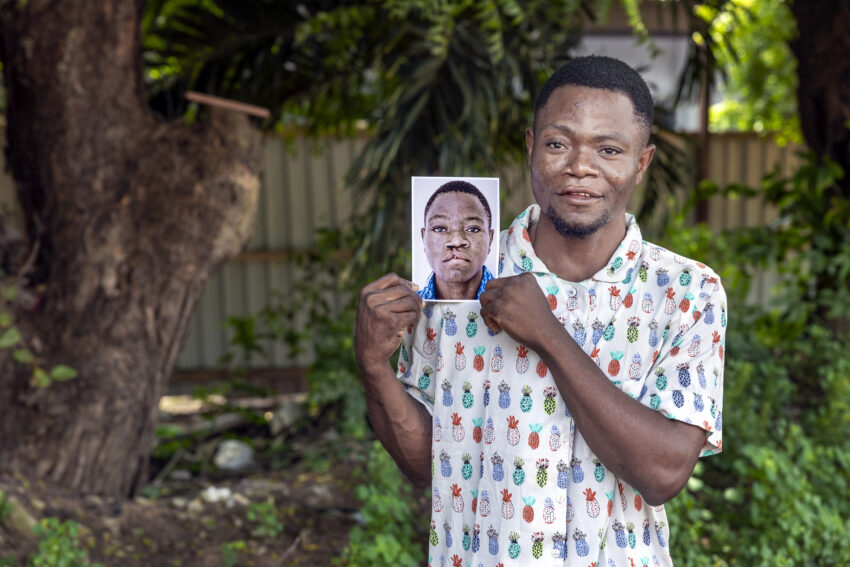
During Fiscal Year July 2024-June 2025, Operation Smile Canada has committed to invest $51,130, accounting for about 2% of Ghana’s total projected budget for the fiscal year, which will directly contribute to providing surgical care to around 300 patients and train approx. 150 local medical providers.
Cleft Care Programs
Operation Smile projects to deliver surgical care to around 300 patients. We will expand comprehensive cleft care by providing consultations in nutrition (300 patients), oral health (180 patients) and speech therapy (100 patients). Operation Smile will recruit around 600 new patients through patient awareness campaigns.
Education
Operation Smile aims to provide medical training for around 150 health workers in Ghana. Operation Smile will provide training to surgeons, anesthesiologists, pediatricians, nurses, biomedical technicians, speech therapists and other local medical personnel. Operation Smile has joined forces with the World Health Federation of Societies of Anesthesiologists to provide quality training to anesthesiologists and the American Heart Association to deliver educational courses to health workers across various specialties.
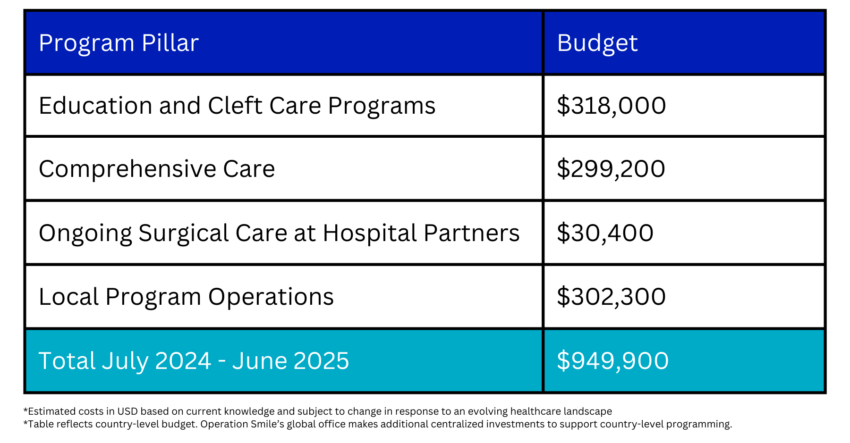
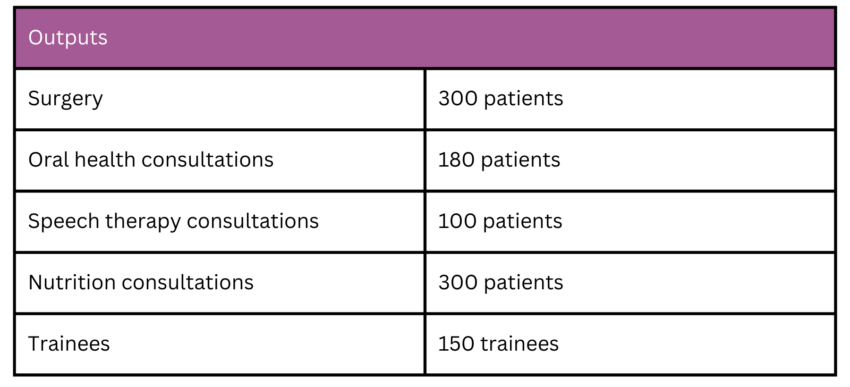
FIVE-YEAR VISION
Within the next five years, Operation Smile will work to reduce barriers to accessing cleft care and increase the quality and quantity of healthcare providers in Ghana.
Operation Smile will provide surgical care for over 2,700 patients. We will deliver consultations for around 4,620 patients, increasing access to comprehensive cleft care.
Operation Smile will partner with four hospitals to establish ongoing cleft programs. To achieve this, we will support the teaching capacity in Accra to train providers from hospitals in three regions and enable these hospitals to deliver quality care for their own communities. We will work to expand plastic surgical capacity beyond the capital city.

